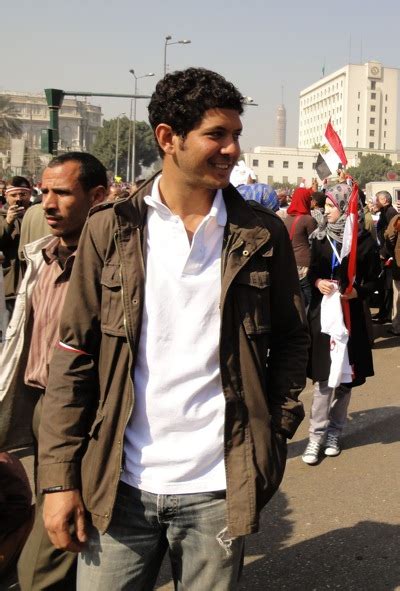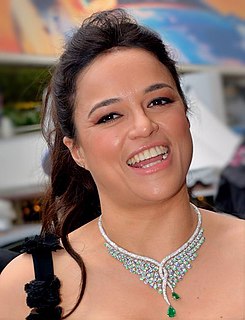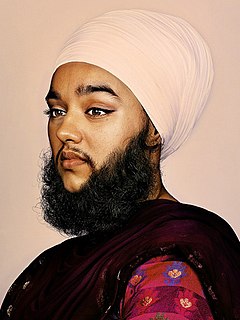Top 552 Activist Quotes & Sayings - Page 10
Explore popular Activist quotes.
Last updated on November 18, 2024.
I cannot imagine why a woman would ever call herself anything but a feminist. But a man calling himself a feminist, what does that mean? The answer is he wants to be taken as a good guy. Your choice is between saying you're a feminist and raising a flag at a "Take Back the Night" rally and being a men's rights activist, which is basically the only two ways men have of talking about gender right now, I mean that's just ridiculous. That's just two extremes that are totally useless.
To solve the new century's mounting social and environmental problems, people of color activist and white activists need to be able to join forces. But all too often, the unconscious racism of white activists stands in the way of any effective, worthwhile collaboration. The Challenging White Supremacy Workshop is the most powerful tool that I have seen for removing the barriers to true partnerships between people of color and white folks. If the CWS trainings were mandatory for all white activists, the progressive movement in the United States would be unstoppable.
Hillary Clinton did try to reach out to the Sanders voters with policy concessions, but Sanders voters, especially his most activist core, are process people. They're not policy wonks. They're people who want big money out of politics. They're people who want fairness from the DNC chair. They're people who want every vote to count. They're the people who don't like Wall Street money. Right? They're primarily about the process of politics and whether or not it's fair and whether or not big-money elites are rigging things in your favor.
I hated the culture, I hated the work. I very quickly realized that this wasn't what I wanted to do. So, after two years, I took some writing courses - I always loved to write - and I figured the only way I was going to get paid to write was in journalism. I really wasn't very involved politically with anything up until that point. Then I started reading about the second Palestinian Intifada, and I spoke to friends in activist and journalism circles. Then, somehow by complete luck, I ended up at Democracy Now.
The documentary we are working on is about my mother, Bev Umehara, for whom our film company, Bev's Girl Films, is named after. It is a passion project that I have wanted to make since her unexpected passing in 1999. The film is about my mother's calling which came late in life, at 47, when she made the sudden transformation from a humble hardworking secretary and mother of four, into a labor activist, a respected union leader, and a role model for rank-and-file workers, women of color, and for all Asian Pacific Americans.
Like the vast majority of Americans, I've opposed same-sex marriage, but I've also opposed unjust discrimination against anyone, for racial or religious reasons, or for sexual preference. Americans are a tolerant, generous, and kind people. We all oppose bigotry and disparagement. But the debate over same-sex marriage is not a debate over tolerance. It is a debate about the purpose of the institution of marriage and it is a debate about activist judges who make up the law rather than interpret the law.
ACORN, you may recall, is the left-wing activist group with longtime ties to community organizer-turned-President Barack Obama. The nonprofit, which now takes in 40 percent of its revenues from American taxpayers after four decades on the public teat, has a history of engaging in voter fraud, corporate shakedowns, partisan bullying and pro-illegal immigration lobbying. The Democrats' stimulus proposals could make the group - and its lesser known but even more radical ideological allies - eligible for upward of $5 billion in new public cash.
I think there are three types of actors. There are the ones that do the ego thing, which is "I'm never going to look bad in a movie, ever." This is mostly the action film dudes, like, "Nah, hell no. He ain't punchin' me! I'd whoop his ass!" Then you've got the activist type who bases their decisions in the development of a character on what it symbolizes to society - what the ethical code is. And then the third type is a true thespian who doesn't give a flying rat's ass what it is as long as it's deep, powerful, and painful, and they will dive in headfirst. I really respect those people.
Fortunately, I come from an activist mother, so I didn't have to rely on the history books. The history books teach us nothing about the Underground Railroad aside from Harriet Tubman. So I knew more about it but, obviously, I had to dig deeper and expand my knowledge and do a lot of research once I took this project on. I had, like, a good two months to research before we started shooting, which isn't a lot, and I continued it throughout the five months of us shooting.
When we were working on immigration reform and there was a young Latino man, young immigration activist here who, in the Roosevelt Room, refused to shake my hand.He made a point of saying, "I can't shake your hand; you're deporting too many people." And I just said to him, "Young man, I'm glad that you feel so passionately about this issue, but you're with the president right now in the White House. You've got to think about what's going to be most effective in getting what you need, what you're trying to accomplish. Because this may not be your best strategy."
There are so many people that don't spend enough time loving themselves and there are so many people that go through so many difficulties. I wanted to make a brand Treasures Within where people can actually stand up and talk - I've given a platform to other people to voice their opinions. With my brand, I go to different places like youth centres and colleges to promote body confidence. I'm an anti-bullying activist, so I talk about that as well and I like to hold events like this where I'm able to promote such amazing things.
As an activist, you do find yourself directed more toward public action. But I've always tried to use stories from my own life in my writing for instance. It has always been clear to me that the stories of each other's lives are our best textbooks. Every social justice movement that I know of has come out of people sitting in small groups, telling their life stories, and discovering that other people have shared similar experiences. So, if we've shared many experiences, then it probably has something to do with power or politics, and if we unify and act together, then we can make a change.










